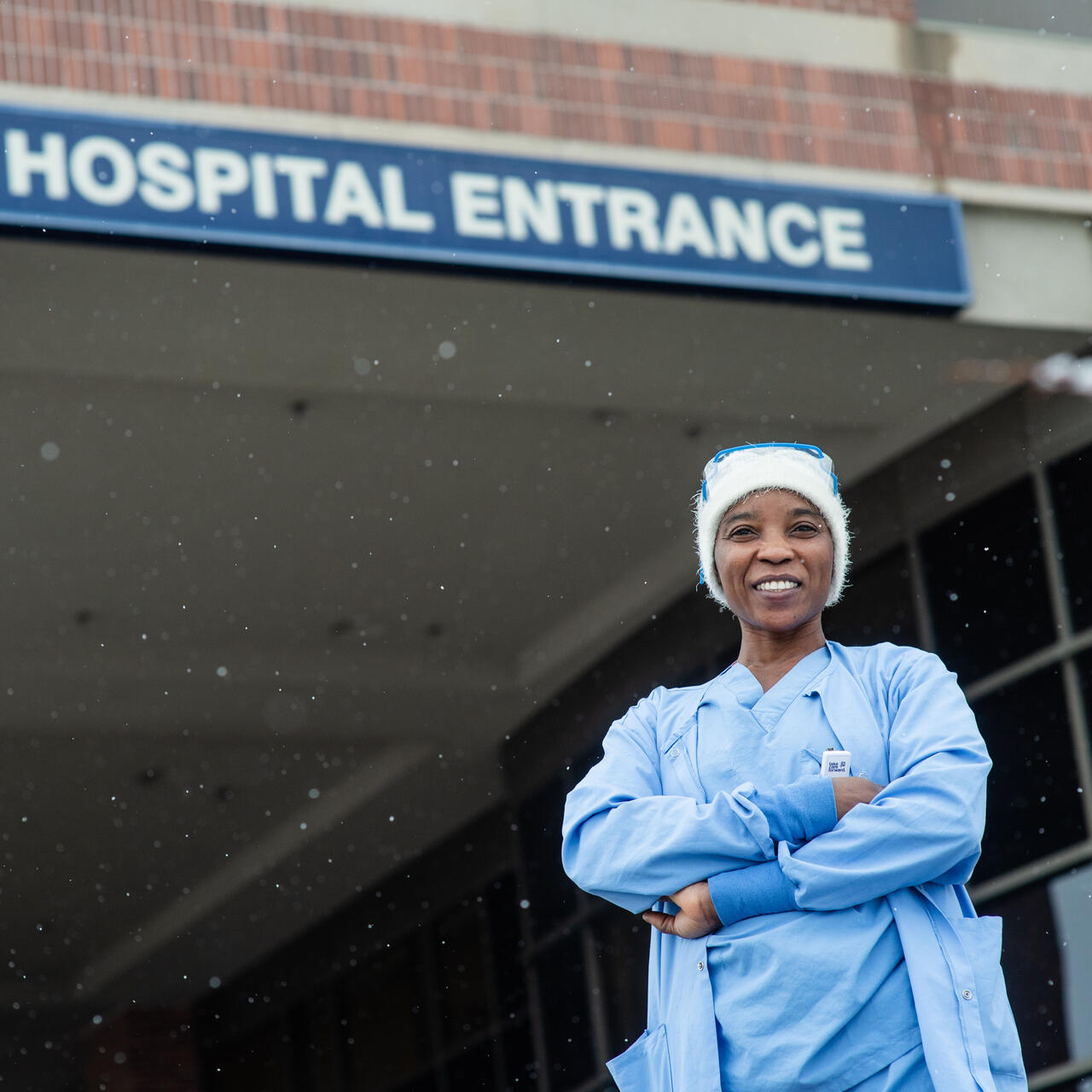
Meet a hospital worker and refugee proud to keep people safe from COVID-19
A single mom of two boys, Nabila Hamid works as an environmental service technician in a hospital while studying to become a nurse.

A single mom of two boys, Nabila Hamid works as an environmental service technician in a hospital while studying to become a nurse.
Nabila Hamid is proud of her work as an environmental service technician in a hospital on the front line of COVID-19. A refugee from Sudan who resettled in Boise, Idaho, in 2012, she recently told the Idaho Statesman: “Going to the hospital everyday to help people, according to my religion, I believe this is my destiny.”
Nabila is responsible for sanitizing hospital rooms after a patient leaves and preventing the spread of disease. Though she may not often come in contact with patients, her work is absolutely critical to keeping them and the hospital staff safe—especially during COVID-19. Eager to provide the best life she can for her two sons (ages 11 and 6), Nabila has also added school to her already full plate in order to realize her dream of becoming a nurse.
Below, Nabila talks to the International Rescue Committee about why she loves working in the medical field, her experience getting the COVID-19 vaccine and her hopes for the U.S. in 2021.

What is your job and day-to-day life like? How did it change during the pandemic?
My work day starts early, around 7:30. We review our assignments for the day, then begin our jobs. As an environmental service technician, I clean and sanitize the patient rooms. During the pandemic, having this job is an opportunity to be around people and to play an important role.
After work, I attend certified nursing assistant classes and spend time with my sons.
How have you seen life change during COVID-19?
The whole world has changed. It’s led to an increase in poverty, especially in less wealthy countries. Some people have lost their jobs and others have been forced to work from inside their homes for fear of the virus. Then there are some that see staying home as a positive thing, and are enjoying their time with their children and their families.
You were able to get the COVID-19 vaccine. What was that like?
I was scared a little bit but I thought about it deeply and decided to take it.
All over the world, people are dying. By taking the vaccine, I could encourage others to do it and defy all of the rumors on social media that are scaring people.
If someone asked me about the vaccine, I would say they should take it to protect themselves as well as to protect their friends, family and community.
Why do you want to work in the health care field?
Health care is a humanitarian job and I like to do jobs that help people.
Since I began working in the hospital, I’ve been impressed with how people treat each other: how the doctors and nurses treat the patients and how they treat one other and the other staff. From the beginning, that gave me hope that this could be a good place to work.

What is the best part of your job?
Everybody in the hospital works hard and has their own role. And everyone is important whether they are cleaning or they are the doctor or a nurse.
What are your hopes for your children?
I’m hoping for success for them and that I can get a good nursing job to support them. I want them to be educated to benefit themselves and so they can be useful to their community.
What are your hopes for the U.S. in 2021?
I wish for an end to this ordeal. I want the United States and the whole world to go back to normal and then hopefully to better than normal.
*This interview has been edited and condensed for clarity.
Read more stories of refugee leaders helping to build back America.